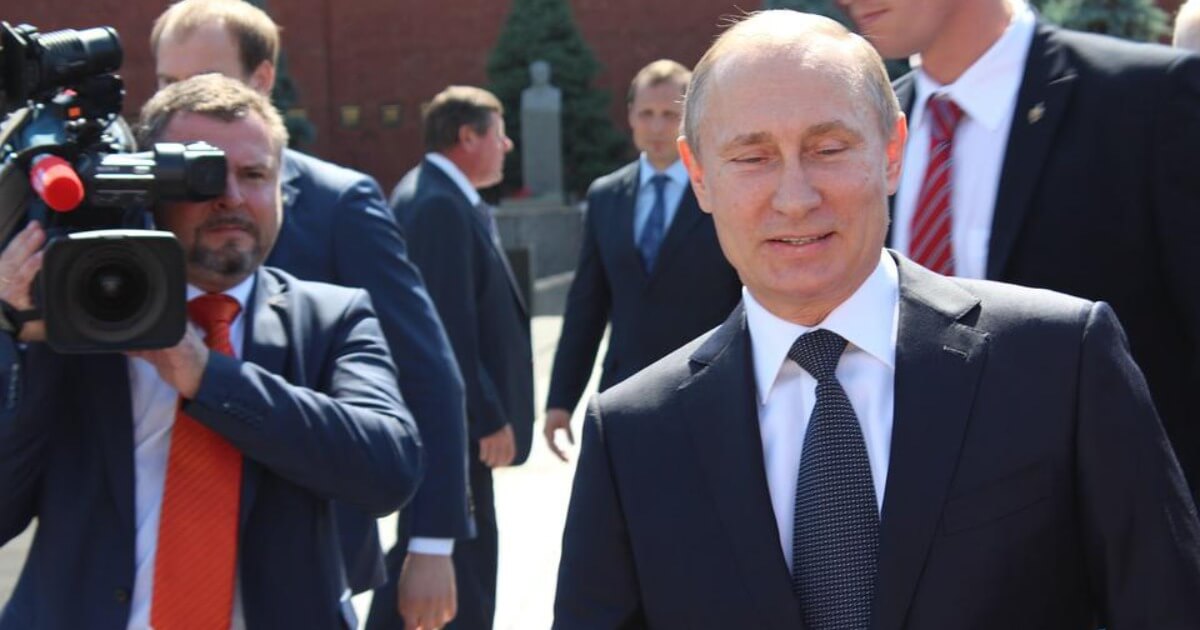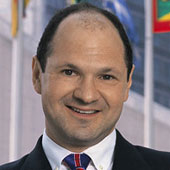Closing Memorial: Putin’s Blueprint for U.S. Republicans
How the closure of the Memorial in Russia is a template for the kind of society Republicans want to build in the U.S.
January 5, 2022

Throughout the civilized world, the closure of the Memorial human rights organization in Russia has been viewed with utter dismay and indignation.
Memorial’s mission is to shed light on the dark pages of the Soviet past, which is why it has incurred Putin’s anger.
Kangaroo court extinguishing vital memory
As a a former Lieutenant Colonel in the KGB, Vladimir Putin finds memorializing the millions who were executed or perished in the Gulag personally grating.
While Putin and the KGB finally got their revenge, closing down a vital civil society organization underscores a sad fact in a dramatic and irrefutable way: Today’s Russia simply cannot look into the mirror.
To avoid dealing honestly with its past, Putin’s gang had a kangaroo court in Moscow act on the basis of a sham law to do its level best to wipe out the one institution dedicated to memorializing the victims of decades of anti-human Soviet terror.
Teach-in for the U.S. Republicans
Bad as that event is itself, where it gets truly scary is in the application to the United States. There, the ever more radically hard right Republican Party can feel inspired by the episode as hands-on demonstration for what kind of society it wants to build.
For concrete evidence, look no further than the Republicans efforts to protect Confederate monuments and keep the teaching about slavery and racism out of classrooms. These actions are driven by the same sentiment as in Moscow — to avoid reckoning with history.
Undoing 1991: Reversing liberty and honesty at home
It wasn’t always so. Back in the days when communism crumbled, a jubilant crowd in Moscow took down the statue of Felix Dzerzhinsky, the notorious founder of the Soviet political police, which stood in front of the KGB headquarters.
Back then, the Russians knew that, as long as such men were revered, their country would not move forward and become a modern, prosperous democracy.
That era is now officially closed
Instead, Putin is keen to harp on the triumphs of the Communist era, real or imagined. This even extends to his leisure activities.
A key reason why Putin loves playing ice hockey is because it reminds him of the victories of the Soviet Union’s ice hockey team.
Putin is a propagandist abusing history at will
Whatever doesn’t fit Putin’s highly selective upbeat narrative – such as the mention of the 1939 partition of Poland by Hitler and Stalin which started World War II or the postwar occupation of Eastern and Central Europe – has been banned and, in many cases, is punishable by law.
It fits the pattern that, when Ukraine decided in 2015 to “de-communize” by getting rid of Communist-era monuments and renaming streets and cities bearing the names of communist leaders, the Russian government was outraged.
In Russia, those monuments still stand and those names are still honored. Unsurprisingly, there has been talk recently to return the Dzerzhinsky statue to its old location.
The U.S. side of the anti-memorializing equation
Strange though it may sound, this story echoes recent events in the United States. For a long time, there have been calls to dismantle Confederate monuments and change the names of those military bases, battleships and even universities that are named after Confederate generals and politicians.
The underlying reasoning was straightforward enough: Honoring the names of secessionist politicians and generals looks suspiciously like glorifying their 1860s war-path struggle to preserve the institution of slavery.
Moreover, the continued commemoration of Confederate “heroes” effectively continued to validate past segregation and racial discrimination.
It is self-evident that, if today’s United States of America hopes to rid itself of its legacy of slavery and racism, whatever honored the Confederacy has to go.
American refuseniks
The Party of Trump wants to prevent that, as the 2017 right-wing riot in Charlottesville, Virginia, showed so clearly. The riots were triggered by the city’s decision to remove the statue of General Robert E. Lee.
Donald Trump sided with those who protested its removal, claiming that Lee was “a great general whether you like it or not”.
In 2020, Trump also threatened to veto the defense bill if it contained a provision to rename U.S. military bases honoring Confederate generals.
The celebration – and defense — of the Confederacy is even more blatant at the state level. For example, the Republican-dominated legislature in South Carolina passed a law prohibiting the removal of Confederate monuments.
Another Republican state, Florida, made it a felony to damage Confederate statues during protests.
Russia’s Gulags, American slavery
The same goes for the teaching of history of race relations in America. A rash of proposed new laws in Republican-dominated states limits the mention of racism in the classroom and even imposes penalties on teachers and school districts.
This is happening in Oklahoma, the U.S. state where in 1921 the infamous Tulsa riot resulted in the death of a large number of African Americans.
It is also happening in Indiana, a state which in the 1920s had the highest Ku Klux Klan membership in the United States.
Conclusion: Russia and America, Learn from history
History has a way of punishing those who don’t learn from it. Russia refused to conduct a full-scale “decommunization” after the fall of the Soviet Union.
Gradually, former communists and KGB officers regained power and staged a comeback. They started out by whitewashing the communist past and have graduated to shutting down human rights organizations, declaring dissidents “foreign agents” and jailing opposition politicians.
In the U.S., similarly, the Republicans started by defending Confederate monuments and banning any mention of racism from schools. They are now passing laws limiting access to the ballot box, specifically targeting African Americans and other persons of color.
This is definitely not the way in which one would have wanted a rapprochement between the United States and Russia to occur.
Takeaways
Memorial’s mission is to shed light on the dark pages of the Soviet past of far-flung, domestic state terrorism, which is why the organization incurred Putin’s anger. So he simply closed it down.
Like Putin, U.S. Republicans are also determined to avoid reckoning with a very troubling history. Hence their determination to protect Confederate monuments and keep the teaching about slavery and racism out of classrooms.
History has a way of punishing those who don’t learn from it. Russia refused to conduct a full-scale “decommunization” after the fall of the Soviet Union. In the U.S. today, Republicans protect the secessionist South.
Putin is a propagandist abusing history at will: Whatever doesn’t fit Putin’s narrative – such as the mention of the 1939 partition of Poland by Hitler and Stalin which started World War II or the postwar occupation of Eastern and Central Europe – has been banned.


